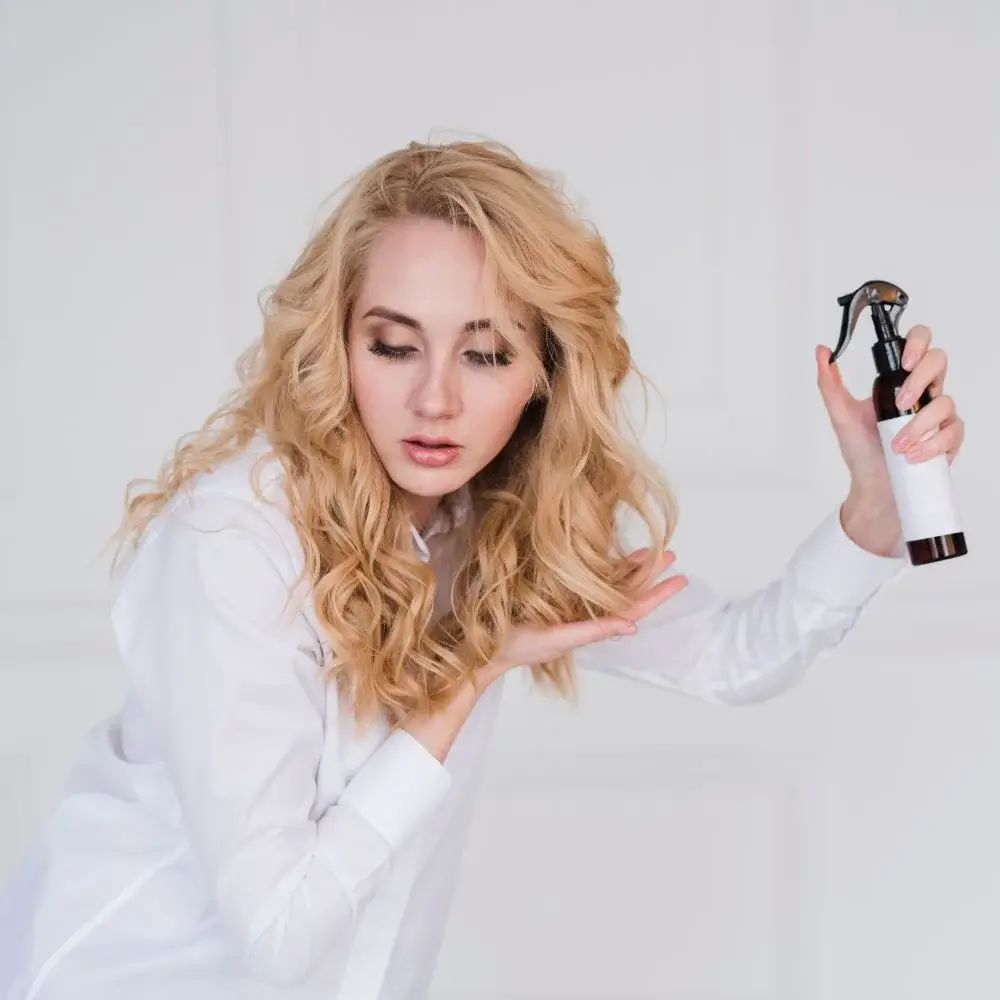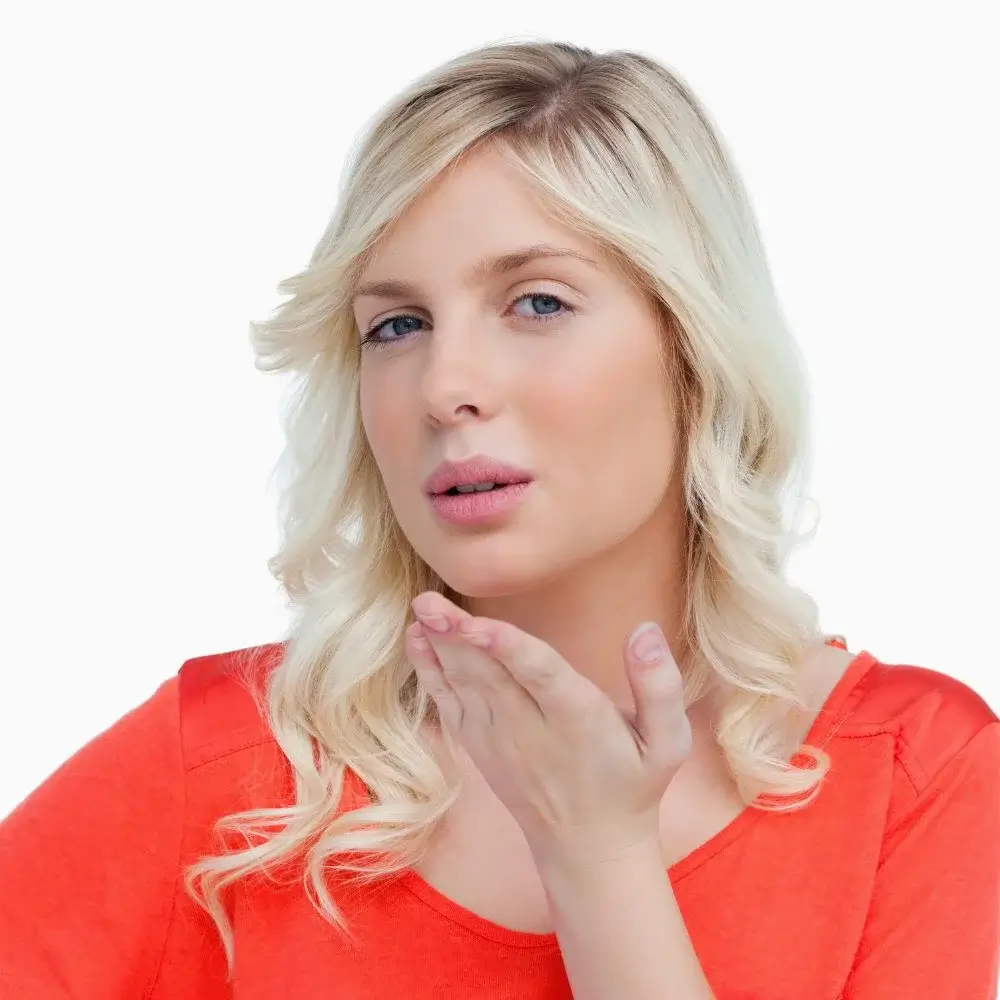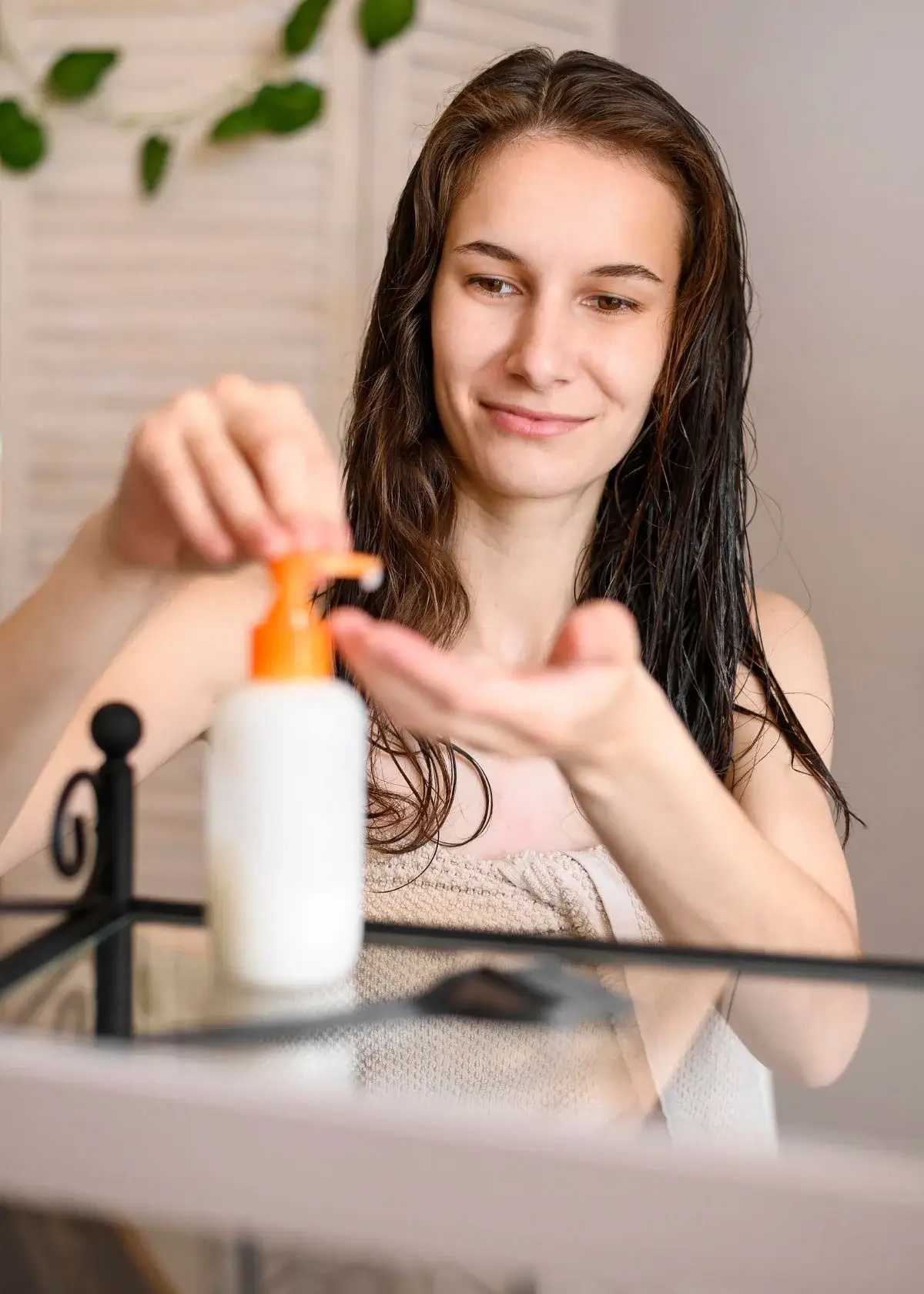Relaxing your hair can be a fantastic way to achieve smooth, straight, and silky locks. However, chemically relaxing your hair can also cause damage and breakage. This is where deep conditioners come in. Deep conditioning is essential in maintaining healthy, firm, and moisturized relaxed hair. But, with so many options on the market, how do you choose the right deep conditioner for your hair? This post will explore different types of deep conditioners, their benefits, and how to choose the right one for your relaxed hair.
Choose a conditioner that suits your hair type:
When choosing a deep conditioner, you must ensure it is formulated for relaxed hair. Relaxed hair is often drier and more fragile than natural hair, so it needs extra moisture and nourishment. Look for deep conditioners that are specifically formulated for chemically treated hair. This will ensure the conditioner contains the right ingredients to moisturize, repair, and protect your hair.
Consider the ingredients:
The ingredients in a deep conditioner can make all the difference in how it works on your hair. Look for deep conditioners that contain natural ingredients like argan oil, shea butter, and coconut oil. These ingredients moisturize and nourish the hair from the inside out, leaving your hair soft, smooth, and manageable. Avoid deep conditioners that contain sulfates, parabens, and other harsh chemicals that can strip your hair of its natural oils and cause damage.
Look for products with protein:
Relaxed hair is often prone to breakage, so a deep conditioner with protein can help strengthen the hair and prevent breakage. Look for deep conditioners containing hydrolyzed proteins like keratin, wheat, or soy protein. These proteins can help strengthen the hair shaft and improve its elasticity.
Choose a deep conditioner that addresses your hair concerns:
Do you have dry hair? Are you struggling with split ends? Do you want to add shine to your hair? Different deep conditioners address different hair concerns. Look for a deep conditioner that specifically addresses your hair concerns. For example, if you have dry hair, look for a deep conditioner that is hydrating and moisturizing. If you have split ends, look for a deep conditioner with ingredients to help repair and seal split ends.
Experiment:
Finally, don't be afraid to experiment with different deep conditioners until you find the right one for your hair. Everyone's hair is different, and what works for one person may not work for another. Try different brands, formulas, and ingredients until you find the deep conditioner that gives you the desired results. Also, consider incorporating a deep conditioning treatment into your hair care routine at least once weekly to keep your hair healthy and moisturized.
Choosing the right deep conditioner for relaxed hair can be overwhelming, but with the tips above, you can make a more informed decision. Deep conditioning is essential to maintaining healthy, firm, and moisturized relaxed hair. Always choose deep conditioners formulated for chemically treated hair, contain natural ingredients, incorporate protein, address your hair concerns, and experiment until you find the right one for your hair type. You can restore and maintain your relaxed hair's health and beauty with the right deep conditioner.
Finding the best deep conditioner for relaxed hair can often feel like searching for a needle in a haystack. With so many options on the market, it's hard to know where to start and which products will deliver results. That's why we've spent time and effort researching and reviewing some of the top contenders to bring you our top pick for the best deep conditioner for relaxed hair. Click the link to discover which product to cut, and get ready to say goodbye to dry, damaged hair for good.
What are the benefits of using a deep conditioner on relaxed hair?
Using a deep conditioner on relaxed hair is advantageous in multiple ways. This treatment replenishes lost moisture, a common concern for chemically processed hair, which tends to be more prone to dryness. The conditioning process also helps to fortify weakened strands by providing essential nutrients that strengthen the hair's structure. Furthermore, deep conditioning aids in reducing breakage, as it improves the hair's elasticity and overall resilience. By promoting better hair health, deep conditioning contributes to a smoother, more manageable texture, reducing frizz and enhancing natural shine. It's a pivotal step in sustaining the vibrancy and integrity of relaxed hair.

What ingredients should I look for in the best deep conditioner for relaxed hair?
Consider its ingredient list when seeking the most effective deep conditioner for relaxed hair. Opt for products containing hydrolyzed proteins, which can penetrate the hair shaft and reinforce its strength. Shea butter is another beneficial ingredient, renowned for its deep moisturizing properties, essential for combating the dryness often associated with chemically treated hair. Argan oil and glycerin are excellent additions, providing hydration and promoting softness. Conversely, it's advisable to avoid deep conditioners that include sulfates, parabens, and silicones, as these can potentially counteract the positive effects by causing product buildup or stripping the hair of its natural oils.

What is the recommended frequency of using a deep conditioner on relaxed hair?
The frequency of deep conditioning sessions for relaxed hair is critical in maintaining its health and appearance. Aim to deep condition every week. This routine strikes a balance between infrequent conditioning, which can lead to dryness and brittleness due to lack of moisture, and excessive conditioning, which may render the hair limp and overly saturated. Regular weekly deep conditioning ensures consistent nourishment and moisture infusion, contributing to manageable, lustrous, and resilient hair.

How should I prepare my hair before applying a deep conditioner for relaxed hair?
Proper hair preparation before applying a deep conditioner is essential for optimal results. Start by gently cleansing your hair and scalp with a mild shampoo. This removes any buildup, dirt, or excess oils that might hinder the deep conditioner's penetration. After washing, gently pat your hair with a towel to remove excess water. Hair that is too wet might dilute the conditioner's potency. Ensuring your hair is clean and damp creates an optimal environment for the deep conditioner to work effectively.

How long should I leave the deep conditioner on my relaxed hair?
The duration you leave the deep conditioner on your relaxed hair significantly impacts its efficacy. Aim to leave the conditioner on for approximately 20 to 30 minutes. This timeframe allows the ingredients to penetrate the hair shaft deeply, providing the necessary nourishment and repair. For an added boost, consider using a plastic shower cap or applying mild heat, such as a warm towel or a shower steamer, during this time. Heat aids in opening the hair cuticles, enabling better absorption of the conditioner's beneficial components.
Should I use a deep conditioner designed explicitly for relaxed hair or any deep conditioner?
While various deep conditioners are available, opting for one formulated explicitly for relaxed hair is advisable. These specialized products address the unique needs and challenges chemically treated hair faces. They often contain a blend of ingredients tailored to provide the hydration, repair, and protection relaxed hair demands. While general deep conditioners can offer benefits, they might not deliver the precise care that chemically treated hair requires. By selecting a deep conditioner formulated for relaxed hair, you ensure you provide the most appropriate and effective care for your specific hair type.







